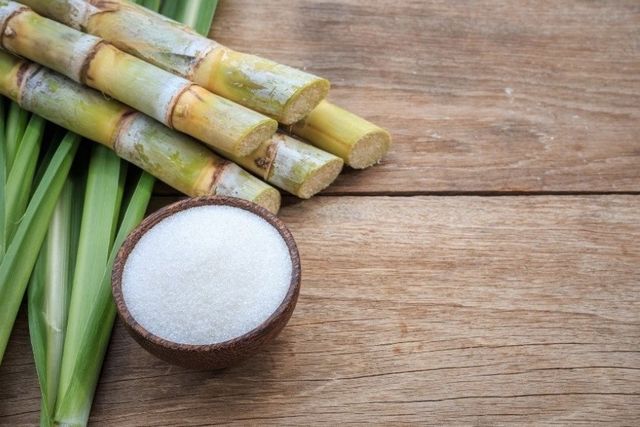How Sugar and Cane Affect Your Taste Buds and Cooking Experience
How Sugar and Cane Affect Your Taste Buds and Cooking Experience
Blog Article
Why Cane Sugar Processing Chemicals Are Important for Modern Sugar Refining
The duty of cane sugar handling chemicals in modern-day sugar refining can not be overemphasized, as they are important to enhancing both the efficiency of removal and the total quality of the final product. Representatives such as phosphoric acid and specific flocculants are used to eliminate impurities, resulting in sugar that not only fulfills consumer expectations but likewise sticks to industry requirements. The ramifications of these chemicals prolong beyond top quality, touching upon market dynamics and ecological considerations. sugar and cane. This increases essential inquiries about the sustainability of such techniques and their impact on the future of sugar manufacturing.
Function of Processing Chemicals
The efficiency of walking stick sugar processing pivots dramatically on the critical application of handling chemicals. These chemicals play a pivotal function in improving the performance and high quality of sugar extraction and refining. From the preliminary stages of juice extraction to the last purification actions, processing chemicals facilitate numerous vital operations.
In the extraction phase, chemicals such as phosphoric acid and calcium hydroxide are used to enhance the clarification procedure, aiding to eliminate impurities and put on hold solids from the walking cane juice. This not just enhances the yield but also makes certain the quality of the last item. Furthermore, representatives like flocculants aid in the rapid settling of contaminations, therefore enhancing the total procedure.
Turned on carbon and ion exchange resins serve to remove color and odor, ensuring that the polished sugar fulfills customer top quality standards. Thus, the meticulous option and application of these chemicals are vital for achieving ideal results in walking cane sugar processing.
Secret Kinds of Chemicals
Cane sugar handling depends on a range of key chemicals that promote each phase of production. These chemicals play necessary functions in making clear, whitening, and purifying the sugar drawn out from cane.
One key group of chemicals consists of flocculants, such as polyacrylamide, which aid in the information process by promoting the gathering and settling of contaminations. In addition, calcium hydroxide is typically utilized to neutralize level of acidity and aid in the elimination of non-sugar parts.
Whitening agents, such as turned on carbon and sulfur dioxide, are utilized to decolorize the syrup, resulting in a clearer last product. These chemicals aid get rid of color substances that may impact the sugar's look and bankability.
Moreover, phosphoric acid functions as a pH regulator during the handling phases, ensuring optimal problems for the enzymatic activities associated with sugar removal and purification.
Other crucial agents include edta (ethylenediaminetetraacetic acid), which chelates steel ions that could militarize unwanted reactions, and salt hydroxide, which assists in pH control throughout the refining procedure. Collectively, these chemicals enhance performance and make sure a premium cane sugar product.
Advantages for Sugar Quality
Usually ignored, making use of details processing chemicals considerably enhances the overall high quality of cane sugar. These chemicals play a pivotal duty in refining procedures, ensuring that the end product fulfills strict industry requirements for purity and preference.

Furthermore, processing chemicals help in achieving a consistent granulation and texture, which are vital for consumer acceptance. By controlling the formation process, these chemicals make certain that the sugar crystals form evenly, causing an extra attractive product that dissolves well in numerous applications.
Moreover, making use of these chemicals can improve the service life of walking cane sugar by decreasing wetness absorption and microbial growth. In general, the strategic application of handling chemicals is necessary for providing top notch walking cane sugar that satisfies consumer assumptions and industry demands.
Environmental Impact Factors To Consider

Furthermore, the energy-intensive nature of sugar refining, compounded by chemical usage, typically causes enhanced carbon discharges. This adds to climate modification and increases worries regarding the sustainability of current refining practices. Additionally, the sourcing of these chemicals may involve practices that threaten biodiversity, such as monoculture farming, which decreases the durability of agricultural communities.

To minimize these influences, sugar refiners are significantly discovering lasting options and embracing best practices that reduce chemical use. Applying rigorous ecological administration systems can help ensure that the refining process aligns with ecological criteria and promotes biodiversity. Ultimately, a well balanced technique that prioritizes both sugar quality and ecological stewardship is necessary for the long-lasting viability of the sugar market.
Future Fads in Refining
As the sugar market comes to grips with the environmental obstacles related to conventional refining methods, cutting-edge methods are arising to improve both performance and sustainability. One considerable trend is the fostering of eco-friendly chemistry concepts, which focus on making use of non-toxic, eco-friendly processing chemicals. This change not only lessens environmental influence yet also addresses customer demand for cleaner production approaches.
One more encouraging advancement is the execution of innovative filtering modern technologies, such as membrane layer splitting up and adsorption processes. These techniques enhance the quality and high quality of the Read Full Article sugar while decreasing the quantity of wastewater produced during refining. Furthermore, the assimilation of digital innovations, consisting of IoT and AI, is transforming functional performance by enabling real-time tracking and anticipating upkeep, therefore minimizing resource waste.
Additionally, using by-products from sugar refining, such as bagasse and molasses, is obtaining traction. These materials can be transformed into biofuels or value-added items, adding to a round economy within the market. Jointly, these trends signify a change in the direction of even more sustainable practices that not just improve operational effectiveness however additionally straighten with global sustainability goals, making sure the future stability of sugar refining.
Conclusion
Cane sugar processing chemicals are necessary in modern-day sugar refining, significantly enhancing the efficiency and quality of sugar extraction. The tactical usage of these chemicals not just enhances the purity and flavor of the final product but also ensures consistent crystallization and appearance. As the industry increasingly focuses on sustainability, the fostering of environmentally-friendly processing agents is likely to shape future patterns in refining, ultimately resulting in better items and expanded shelf life for customers.

Inevitably, a well balanced approach that focuses on both sugar quality and ecological stewardship is necessary for the lasting feasibility of the sugar sector.
Cane sugar processing chemicals are essential in modern sugar refining, substantially boosting the performance and quality of sugar extraction.
Report this page